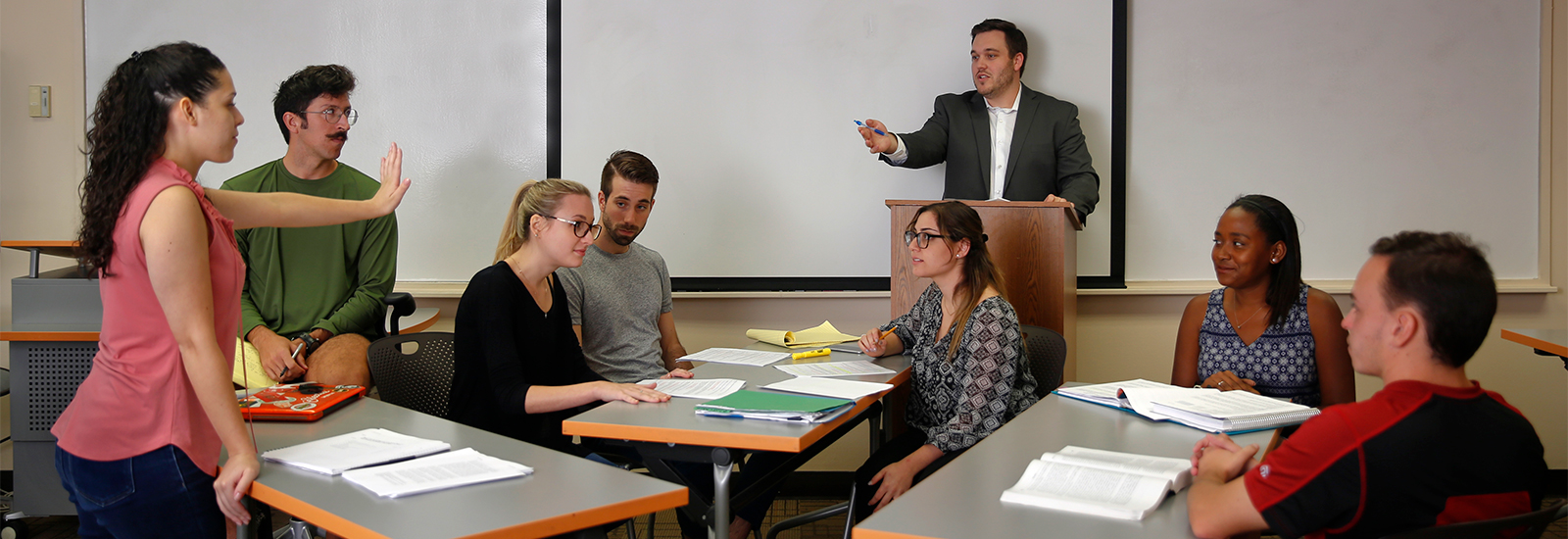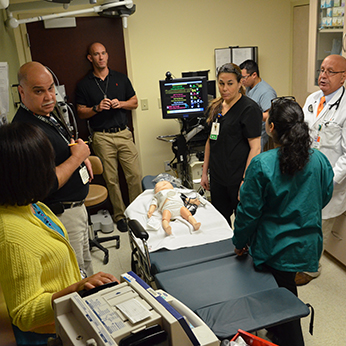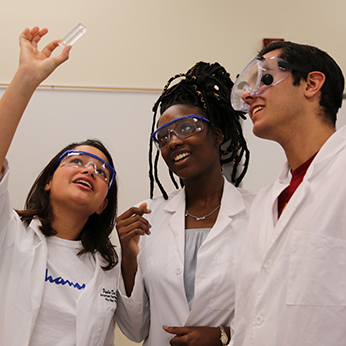by Catharine Skipp
Picture this: A lawyer is conferring with a client. The attorney is behaving in a manner that serves her interests, rather than that of her client. An observer calls a halt to the meeting, and a replacement takes the place of the offending attorney.
The Health Rights Clinic at the University of Miami School of Law employs the Boal Forum Theatre method to teach law students to spot ethical issues and inappropriate client counseling.
Forum Theatre, or Theatre of the Oppressed, began as an experiment of the Brazilian director, writer, teacher and politician, Augusto Boal, at the Arena Theatre in Sao Paulo in the 1960s. The method, founded on the principle of transforming the traditional theatrical experience into a democratic, participatory, and collaborative production between the actors and the audience, was both political and social.
JoNel Newman, director of the Health Rights Clinic, and Associate Director Melissa Swain, in collaboration with Donald Nicolson, Fergus Lawrie, and other students from the University of Miami and the University of Strathclyde, Glasgow, have adapted Boal's Forum Theatre for use in clinical legal education.
“We’ve seen the model used as a workshop tool training medical professionals and for social justice coaching,” said Newman. “Using it for educating law students and for clinical legal education has been untapped so far but we are working to change that.”
"One of the most important rules for using Forum Theatre successfully in teaching and learning is that the paradigms presented have to be solvable,” Newman said. “Students and faculty from Miami and Strathclyde have developed a very rich and solvable scenario that develops ethical interviewing and counseling skills.”
“The Forum Theatre in-class workshop really helped me get ready to interview my first client,” said Sara Ptachik, a second-year student who joined the Health Rights Clinic in August. “Getting a chance to see a 3L make an interviewing blunder, and then to interrupt and correct it myself gave me insight and confidence.”
The exercise, and its use in clinical legal education, has been an outgrowth of the successful Clinical Exchange Program that the Health Rights Clinic and the Strathclyde Law Clinic have operated since 2015. “We’ve been developing and refining it since that original project and are continuing to do so,” said Newman.
In addition to the methodology’s use in the two clinics, students and faculty from the clinics have presented on and demonstrated this methodology at law clinics in Scotland, Germany and at Trinity College in Dublin, as well as at the 2016 and 2017 International Conferences on Clinical Legal Education held in Toronto and Newcastle.
“We are very excited about further promoting the use of Forum Theatre in legal training,” said Swain.
Newman, Swain, Nicolson, and Lawrie are collaborating on a legal article that explains their methodology and experiences and the theoretical underpinnings of Boal’s methods.






